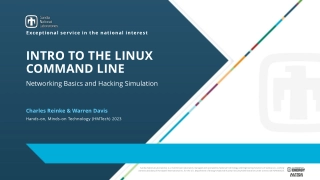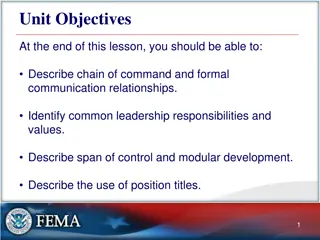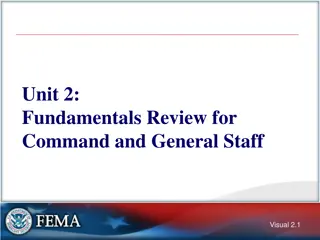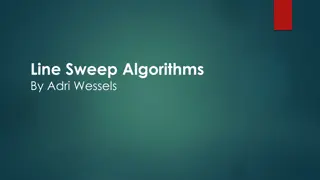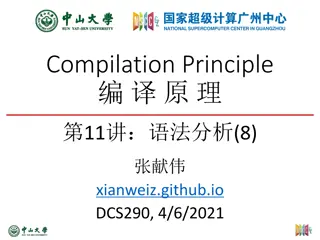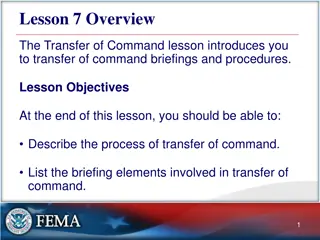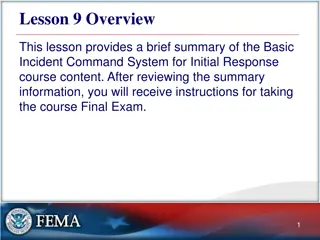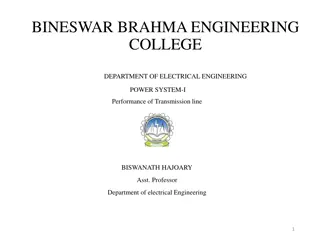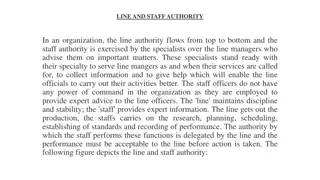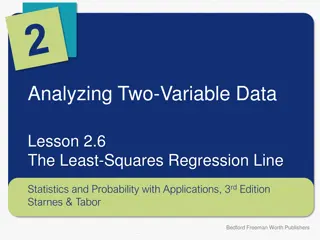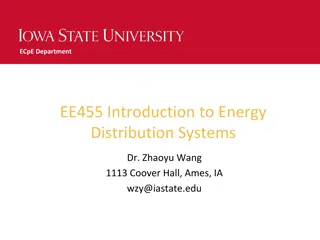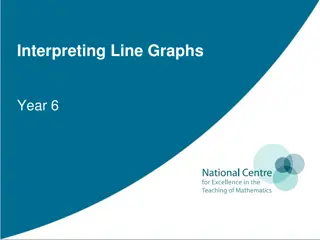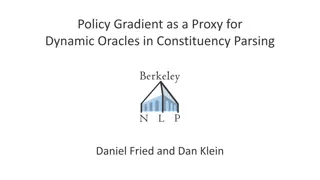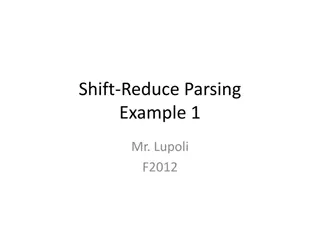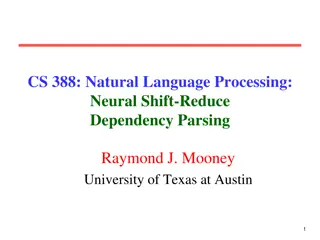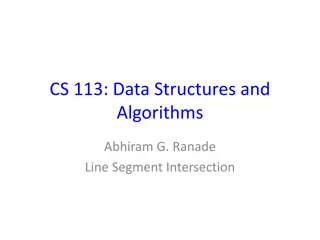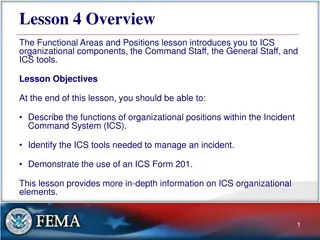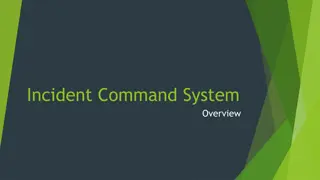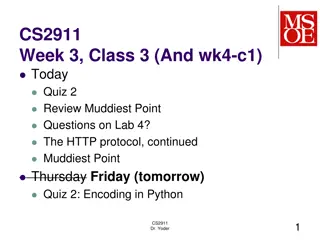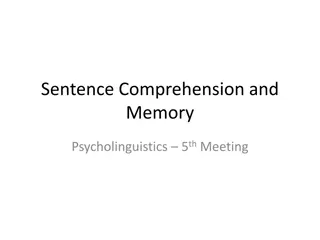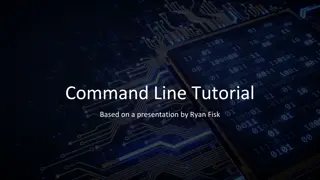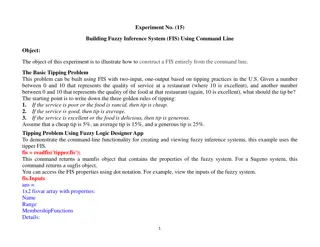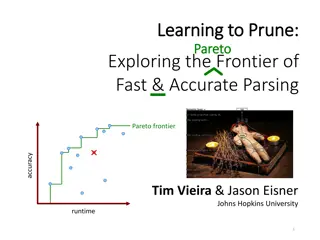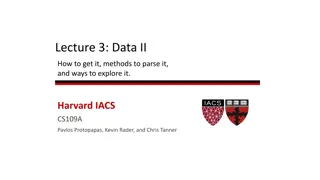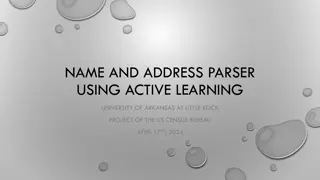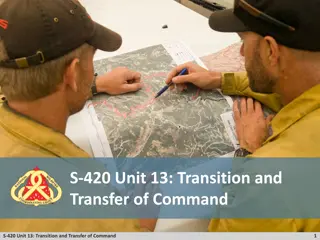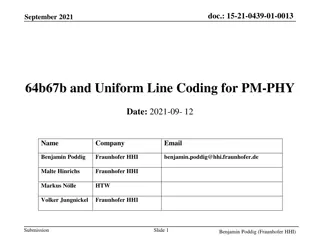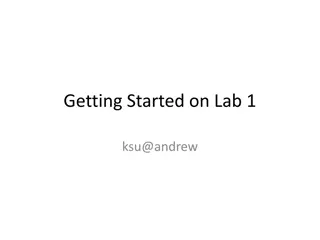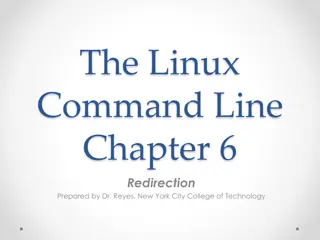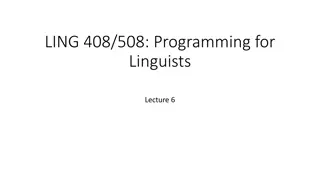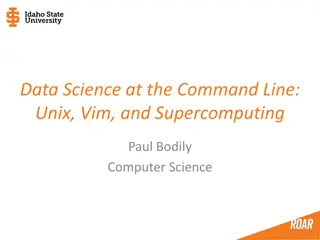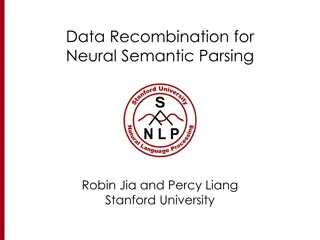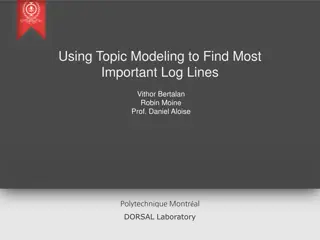Introduction to Linux Command Line
The significance of the command line interface in computing, understand why it is preferred for efficient file management, and discover Linux as an alternative operating system widely utilized on servers and supercomputers. Learn how to access a Linux server via SSH for practical application.
1 views • 14 slides
Unit Objectives
Learn about the importance of chain of command, unity of command, and unified command in organizational leadership. Discover how these concepts help establish clear communication, streamline decision-making, and optimize resource management during incidents. Explore the advantages of using unified c
1 views • 35 slides
Incident Management Fundamentals and Command Structure Review
Explore key NIMS doctrine concepts, agency policies, incident complexity factors, and Unified Command functions in managing complex incidents or events. Learn about Incident Action Planning, transfer of command, and the roles of Command and General Staff positions. Gain insights into incident comple
0 views • 11 slides
Understanding Line Sweep Algorithms in Geometry
Line sweep algorithms are a powerful tool for solving geometry problems by simulating the sweeping of a vertical line across a plane. This approach allows for efficient processing of important points and addressing various geometric challenges, such as finding the closest pair of points, determining
2 views • 10 slides
Understanding LR Parsing and State Merging Techniques
The content discusses LR parsing techniques such as LR(0), SLR(1), LR(1), LALR(1), and their advantages in resolving shift-reduce and reduce-reduce conflicts. It also delves into state merging in LR parsing, highlighting how merging states can introduce conflicts and affect error detection in parser
0 views • 29 slides
Understanding Transfer of Command Procedures in Incident Management
The Transfer of Command lesson delves into the process of shifting incident command responsibilities, outlining reasons for transfer, and discussing how a more qualified individual's arrival does not always necessitate a change in command. The lesson emphasizes the importance of face-to-face transfe
0 views • 11 slides
Basic Incident Command System Overview
This lesson provides a summary of the Basic Incident Command System for Initial Response course content. It covers the NIMS framework, ICS management systems, incident command structure, unity of command, communication protocols, delegation of authority, and management by objectives. Understanding t
5 views • 15 slides
Understanding Performance of Transmission Lines in Electrical Engineering
The performance of a transmission line in power systems is critical for efficient operation. Factors such as voltage drop, line losses, and transmission efficiency are key considerations in design and operation. The line parameters of resistance, inductance, capacitance, and shunt conductance play c
2 views • 26 slides
Understanding Line and Staff Authority in Organizational Structure
Line authority flows from top to bottom in an organization, while staff authority is provided by specialists to advise line managers. Staff members offer expert advice and support to enhance the efficiency of line officials. Different types of staff positions exist, such as personal staff, specializ
0 views • 5 slides
Understanding Least-Squares Regression Line in Statistics
The concept of the least-squares regression line is crucial in statistics for predicting values based on two-variable data. This regression line minimizes the sum of squared residuals, aiming to make predicted values as close as possible to actual values. By calculating the regression line using tec
0 views • 15 slides
Understanding Energy Distribution System Line Models
This presentation delves into the various line models used in energy distribution systems, including exact line segment models and their derivation from Kirchhoff's voltage and current laws. The discussion covers three line segment models, the computation of phase impedance and admittance matrices,
0 views • 44 slides
Understanding Line Graphs: Year 6 Lesson Overview
This document provides an introduction to interpreting line graphs for Year 6 students. It covers key concepts, reviews essential skills, explores precise mathematical vocabulary, and includes lesson clips on right angles and perpendicular lines. The journey through the lesson involves a focus on pe
0 views • 26 slides
Dynamic Oracle Training in Constituency Parsing
Policy gradient serves as a proxy for dynamic oracles in constituency parsing, helping to improve parsing accuracy by supervising each state with an expert policy. When dynamic oracles are not available, reinforcement learning can be used as an alternative to achieve better results in various natura
0 views • 20 slides
Understanding Shift-Reduce Parsing Example in Mr. Lupoli's F2012
This example explains shift-reduce parsing by tracing the input to the original start symbol. It demonstrates how shifting and reducing operations work in parsing mechanics, using the given original production and syntax rules for matching and reduction steps.
0 views • 16 slides
Neural Shift-Reduce Dependency Parsing in Natural Language Processing
This content explores the concept of Shift-Reduce Dependency Parsing in the context of Natural Language Processing. It describes how a Shift-Reduce Parser incrementally builds a parse without backtracking, maintaining a buffer of input words and a stack of constructed constituents. The process invol
0 views • 34 slides
Efficient Line Segment Intersection Algorithm
This content discusses the Line Segment Intersection problem and presents an efficient algorithm using the line sweep technique. The algorithm utilizes ordered sets implemented as balanced search trees to efficiently determine if any two line segments intersect in the plane. By sorting endpoints and
0 views • 10 slides
Understanding Incident Command System (ICS) Organizational Components
This lesson introduces the key components of the Incident Command System (ICS), including the Command Staff, General Staff, and essential tools. It covers the roles of the Incident Commander, Deputy Incident Commander, and Command Staff positions, emphasizing their functions in managing incidents ef
0 views • 40 slides
Overview of Incident Command System (ICS) for Emergency Response
The Incident Command System (ICS) is a model designed for effective command, control, and coordination of emergency responses at various levels. It provides a structured framework for managing incidents, ensuring unified command, setting objectives, managing resources efficiently, and maintaining cl
0 views • 18 slides
Understanding Command-line Arguments and Errors
Learn how to utilize command-line arguments in Python scripts to enhance flexibility and parametrize functions for various inputs. Explore ways to access and utilize command-line arguments effectively, while handling errors gracefully.
0 views • 30 slides
Understanding Advanced Parsing Techniques for NLP Evaluation
Delve into the realm of advanced parsing with a focus on evaluating natural language processing models. Learn about tree comparison, evaluation measures like Precision and Recall, and the use of corpora like Penn Treebank for standardized parsing evaluation. Gain insights on how to assess parser per
0 views • 50 slides
Analyzing Discourse Structures in Natural Language Processing
This content explores various aspects of NLP including discourse analysis, parsing, rhetorical relations, and argumentative zoning. It delves into understanding text structures, relationships, and the use of different rhetorical devices. Examples and illustrations are provided to aid comprehension a
0 views • 8 slides
Review of Quiz 2 Topics: Encoding in Python, Binary Representations, and Parsing Messages
Today's session covered a review of Quiz 2 topics focusing on Encoding in Python, Binary Representations, and Parsing Messages. Key points included understanding why different types of data cannot have unique types in Python, recognizing the significance of 0d0a in HTTP body, discussing exercises fr
0 views • 10 slides
Understanding Sentence Comprehension and Memory in Psycholinguistics
Sentence comprehension involves parsing, assigning linguistic categories, and utilizing syntactic, semantic, and pragmatic knowledge. The immediacy principle and wait-and-see approach play roles in the processing of sentences. Figurative language and the challenges in parsing sentences are also disc
0 views • 26 slides
THVD8000 Line Driver for AC Line PLC Bench Setup
Explore the setup of THVD8000 line driver for AC line PLC, including transmitting and receiving paths, signal flow, power distribution, and components involved. Follow the signal path from THVD8000EVM to AFE031 boostpack, transformer, HV capacitor, and UCC28880EVM. Understand the power flow from AC
0 views • 11 slides
Command Line Tutorial: Mastering File Navigation and Basics
Explore the fundamentals of working with files and directories in the command line environment. Learn how to set up on Windows, navigate directories, use essential commands like `pwd`, `cd`, and `ls`, and understand file naming conventions. Equip yourself with the knowledge to efficiently manage fil
0 views • 20 slides
Understanding Top-Down Parsing in Context-Free Syntax
Context-free syntax expressed with context-free grammar plays a key role in top-down parsing. This parsing method involves constructing parse trees from the root down to match an input string by selecting the right productions guided by the input. Recursive-descent parsing, Rule Sentential Forms, an
0 views • 17 slides
Building Fuzzy Inference System (FIS) Using Command Line: Tipping Problem Example
Illustrate constructing a FIS from the command line to solve the Basic Tipping Problem. Define rules based on service and food quality to determine tip percentage. Demonstrates creating and viewing fuzzy inference systems using a command-line approach.
0 views • 7 slides
Exploring Fast & Accurate Parsing With Learning to Prune
In this informative content, the concept of learning to prune is discussed in the context of exploring the frontier of fast and accurate parsing. It delves into the optimization tradeoff between runtime and accuracy in end-to-end systems, showcasing a Pareto frontier of different system performances
0 views • 42 slides
Exploring Data Acquisition and Parsing Methods in Data Science
This lecture covers various aspects of obtaining and parsing data, including methods for extracting web content, basic PANDAS commands for data storage and exploration, and the use of libraries like Requests, BeautifulSoup, and PANDAS. The Data Science Process is highlighted, emphasizing the importa
0 views • 42 slides
Introduction to NLP Parsing Techniques and Algorithms
Delve into the world of Natural Language Processing (NLP) with a focus on parsing techniques like Cocke-Kasami-Younger (CKY) and Chart Parsing. Explore challenges such as left recursion and dynamic programming in NLP, along with detailed examples and explanations of the CKY Algorithm.
0 views • 42 slides
Enhancing Name and Address Parsing for Data Standardization
Explore the project focused on improving the quality of name and address parsing using active learning methods at the University of Arkansas. Learn about the importance of parsing, entity resolution, and the token pattern approach in standardizing and processing unstructured addresses. Discover the
0 views • 11 slides
Transition and Transfer of Incident Command
Ensuring effective transition and transfer of incident command is crucial for incident management. This involves activities such as demobilization planning, transfer of command planning, incident package creation, and more. Detailed plans need to be in place to facilitate a smooth handover of author
0 views • 12 slides
Optimizing Line Coding for PM-PHY: A Detailed Analysis
Enabling line coding and channel equalization methods for PM-PHY, the IEEE 802.15.13 standard introduces overhead while enhancing channel adaptation. This contribution proposes 64b67b and Uniform Line Coding as alternative transmission modes, aiming to reduce line coding overhead while maintaining a
0 views • 26 slides
Introduction to Lab 1: Understanding Migratable Processes and Transactional File Streams
Explore the fundamentals of lab 1, covering topics such as Migratable Processes, Transactional File Streams, Process Managers, Command Line Parsing, Launching Processes, and Thread Management. Delve into key concepts and implementations to kickstart your understanding of this practical project.
0 views • 14 slides
Comprehensive Guide to Redirection, Pipelines, and Patterns in Linux Command Line
This comprehensive guide covers the use of redirection, pipelines, filters, and patterns in the Linux command line. Learn how to redirect output, use pipelines to pass output between commands, apply filters like sort and uniq, search for patterns using grep, and more. Gain a deeper understanding of
0 views • 7 slides
Understanding Bottom-Up and Top-Down Parsing in Computer Science
Bottom-up parsing and top-down parsing are two essential strategies in computer science for analyzing and processing programming languages. Bottom-up parsing involves constructing a parse tree starting from the leaves and moving towards the root, while top-down parsing begins at the root and grows t
0 views • 29 slides
Introduction to Shell Arithmetic and Command.bc for Linguists
Today's lecture covers shell arithmetic, positional parameters for shell scripts, making shell scripts executable, and using command.bc for mathematical computations in the shell environment. Examples and demonstrations on shell arithmetic, utilizing the 'expr' command, and leveraging 'bc' command f
0 views • 21 slides
Exploring Data Science at the Command Line with UNIX and Vim
Delve into the world of data science through the command line, UNIX, and Vim, which offer agile, filesystem-integrated, scalable, and extensible solutions. Discover the significance of the command line, its integration with other technologies, and the role it plays in supercomputing and remote compu
0 views • 29 slides
Advances in Neural Semantic Parsing
Delve into the realm of neural semantic parsing with a focus on data recombination techniques, traditional parsers, and the shift towards domain-general models. Explore the application of sequence-to-sequence models and attention-based neural frameworks in semantic parsing tasks. Discover the evolvi
0 views • 67 slides
Utilizing Topic Modeling for Identifying Critical Log Lines in Research
By employing Topic Modeling, Vithor Bertalan, Robin Moine, and Prof. Daniel Aloise from Polytechnique Montréal's DORSAL Laboratory aim to extract essential log lines from a log parsing research. The process involves building a log parser, identifying important log lines and symptoms, and establishi
0 views • 18 slides
